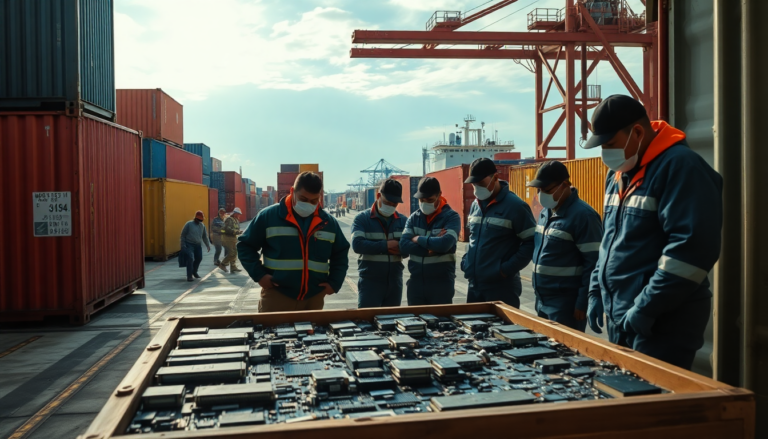Argomenti trattati
The unfolding saga of Nvidia chip smuggling in Singapore isn’t just a legal drama; it’s a vivid illustration of the intricate dance of international trade and technology regulation. With each twist in this case, we’re reminded that the stakes are higher than just the individuals involved—these actions could ripple across global supply chains and the tech industry as a whole. So, what does this mean for the future of technology regulation?
Overview of the Case
Mark your calendars for August 22, when hearings will commence for three individuals accused of smuggling linked to Nvidia’s advanced AI chips. The prosecution is seeking extra time to sift through vital documents and gather insights from international entities related to the case. Among the accused are two Singaporeans, Woon Guo Jie and Alan Wei Zhaolun, alongside Chinese national Li Ming. All three face fraud charges, stemming from alleged misrepresentations about the destinations of the technology they acquired in 2023 and 2024.
Earlier this year, authorities in Singapore launched a major crackdown on a smuggling network that reportedly supplied DeepSeek, a company aiming to rival AI models from the United States. The investigation intensified after DeepSeek’s launch in late December 2024, raising eyebrows about the legitimacy of their tech acquisitions. Interestingly, Nvidia revealed that while Singapore accounted for a hefty 28% of its sales, only 1% of deliveries actually stayed within the country, drawing the attention of U.S. officials.
Broader Implications of Chip Smuggling
The backdrop of chip smuggling is largely tied to the export controls imposed by Washington on cutting-edge AI technology. Reports have surfaced about various smuggling incidents, including one Chinese businessman who flaunted his illicit acquisitions on social media. This alarming trend has prompted U.S. representatives to press both government agencies and private corporations for clarity on their compliance with export regulations. Meanwhile, Nvidia maintains that it has no role in the distribution of GPUs to sanctioned entities, with CEO Jensen Huang asserting, ‘There is no evidence of AI chip diversion.’ But can we take that at face value given the mounting allegations?
Singapore’s role as a major business hub in Southeast Asia complicates the tracking of these transactions. Many companies may list Singapore as their billing address, while goods are actually shipped elsewhere, making it a challenge to pinpoint the final destinations of sensitive items like advanced servers. This has led U.S. lawmakers to propose new regulations that would require companies to implement tracking technologies on high-end gaming and AI GPUs, aiming to ensure compliance and transparency.
Looking Ahead: The Future of Technology Regulation
As this investigation unfolds, the implications for international trade and technology governance are profound. The collision of tech innovation with regulatory frameworks demands constant vigilance from both governments and corporations. How can we strike the right balance between fostering innovation and ensuring adherence to the law?
The ongoing chip smuggling case in Singapore serves as a stark reminder of the hurdles facing the global tech industry as it navigates a maze of regulations and market dynamics. Stakeholders must be proactive in addressing these challenges to protect the integrity of international trade and technological progress. Will we see a shift in how technology is regulated in the near future? Only time will tell, but one thing is for sure: the conversation is just getting started.

